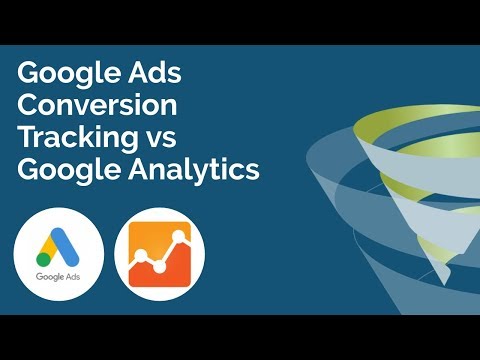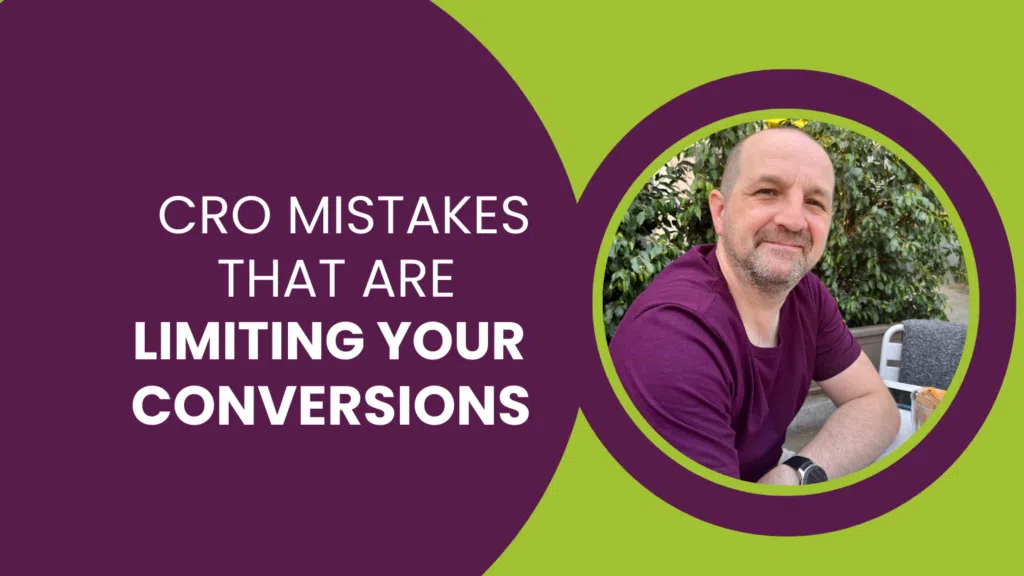It’s time to settle an argument which we’ve had with many other people in the world of digital marketing. Which is better: Google Ads (formerly known as AdWords), or Google Analytics conversion tracking?
In this instalment of T-Time with Tillison, Mark weighs up the pros and cons of each, including their differing attribution models, and much more.

In this T-Time show:
- The difference between Google Ads and Google Analytics conversion tracking
- How Google Ads attributes conversion data
- How Google Analytics attributes conversion data
- Why importing Google Analytics Goals is the worst thing you can do
The difference between Google Ads conversion tracking and Google Analytics conversion tracking
(0:52) The best place to start is to look at what fundamentally separates the conversion tracking on Google Ads and Analytics, respectively. We know with purchases, leads and contact forms, in some instances someone will click on an ad and land on your site and convert immediately, however more often than not there are multiple clicks involved in that conversion cycle; this is where tracking becomes a problem.
How does Google Ads attribute conversion data?
(1:39) Let’s take a look at this simple Google Ads Tracking model; on Saturday, our user clicks on a Google Shopping ad, nothing happens on Sunday, on Monday the user returns to the site through an organic click and then on the Tuesday they make a purchase. In this case our sale or conversion is £100 and that happened on Tuesday.
Google ads attributes the sale to the day that the click happens not the day when the sale happens. The click and the sale may often happen in the same day however in more cases than not you would have spent ‘X’ amount of money on a click on Saturday and the conversion does not occur until Tuesday for example. As a result of the clicks you paid for on Saturday, you are going to get sales on Sunday, Monday and Tuesday and therefore there is a lag in the Google Ads performance data.
Your Personal Google Ads Video Audit
We'll record a personal audit of your Google Ads account, and explain
- where you're wasting budget
- the opportunities you're missing
- how to improve performance
Get Your Personal Google Ads Audit Now
Get Your Personal Google Ads Audit Video
Please provide your details below and one of our specialists will be in touch as soon as possible.
By looking at your search funnel you can see the data and the conversion cycle for your campaigns and essentially if this is a week or two weeks in length, you will want to look back at your complete data set over the last few weeks to get a full picture of how well your campaign is performing.
In summary Google Ads Tracking attributes the sale or conversion to the day that the last Google Ads click happened.
How does Google Analytics attribute conversion data?
(3:40) In comparison, if we look at Google Analytics Tracking with the same model. Google Analytics will report this as a £100 sale from an organic source on Tuesday because the sale happened on Tuesday, even though the last organic click happened on the Monday. Essentially Google Analytics uses the last non direct click, which in this example is the organic click and therefore Google Shopping Ads receives no credit.
Why is importing Google Analytics goals the worst thing you can do?
(4:58) In our example, the shopping click happens on Saturday, the organic click happens on Monday and the direct click happens on Tuesday. The problem here is that Google Analytics only passes the data to Google Ads when Google Ads is the last non direct click. So in this example, the last non direct click is organic and Google Ads will receive no credit for it and in your Google Ads Account there will be zero revenue and zero conversions showing. This is a problem as you would want to know every search query, every click on an ad and every click on a display ad in order to understand the value that it is bringing to your campaign and ultimately your business.
Mark recommends using Google Ads Tracking tools to fully understand the relative performance between each of your keywords, product ads, display ads, re-marketing and so on compared to other keywords, other ads and products. You may find that some products perform better than others and with this model you will be better equipped to optimise the campaign better as you will have a more accurate larger quantity of data.
Popular Google Ads Videos
(7:10) Let’s have a look at what this conversion data could potentially look like in your Google Analytics account under Attribution Models. In this example, what is being compared is the last non direct click vs the last Google Ad click. As you can see when looking over this period the last non direct click had 4,938 conversions and a conversion value of just over £200,000, comparing this to the last Google Ad click data that the Google Ads Tracking model would use, there were 5,500 conversions, around 600 more conversions than the Analytics model. Overall this is showing around 11% more conversions attributed to the last Google Ads click model.
Therefore if you import the Google Analytics Goal into Google Ads you are looking at individual keywords and there might be no or limited conversions on them and this may convince you to lower your bid, or you look at a particular product and see that it’s not converting very well and so you lower the bid. However, it actually is converting well it’s just not gaining any credit. This ultimately leads to you and Google making the wrong decisions about which keywords and ads are working and adding value to your business and which ones are not.
So, which one is better?
In conclusion, Mark strongly recommends that you always use Google Ads Tracking and use your Google Analytics to get a better understanding of how your data fits into the multi channel funnel.
Recent Google Ads Blog Posts
If you found this episode of T-Time with Tillison useful, subscribe to our YouTube Channel for more tips and advice on how to use Google Ads Tracking and Google Analytics Tracking and the attribution modeling.
Do you have any questions about Google Ads Tracking and Google Analytics Tracking? Get in touch with your questions in the comments, or click below to find out more about our audit and coaching services.










